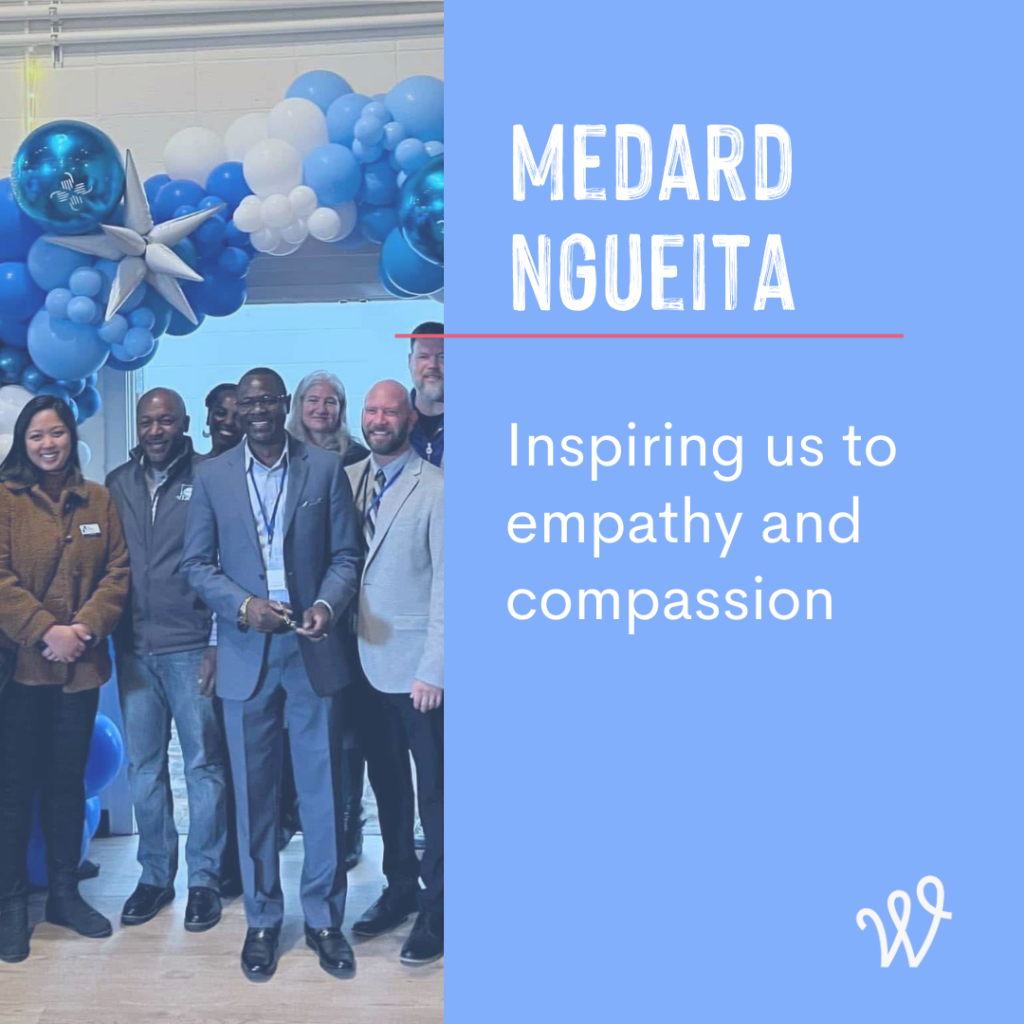Many Migrants Face Challenges We Can Only Imagine
As the Executive Director of World Relief Western Washington, Medard Ngueita brings a unique perspective to the table—one that was shaped by his own immigration journey from Chad to the United States. From seeking political asylum to being the first former participant to lead a U.S. office, Medard’s story speaks volumes about the potential for growth and impact within the immigrant community.
Medard’s leadership focuses on amplifying immigrant voices and reshaping hiring practices to recognize human capabilities beyond traditional resume requirements. He believes in investing in people, creating opportunities for minorities, and fostering diversity in leadership for organizational effectiveness and trust.
“I hope World Relief Western Washington can be a place where immigrants and other minorities can build their resumes for the U.S. workplace,” says Medard, “rather than perpetuating their marginalization.”
However, Medard’s passion for advocacy began long before he arrived in the U.S. Growing up in Chad, Medard faced challenges that many of us can only imagine. He remembers his single mom struggling to earn enough as a teacher to meet their needs, but despite financial hardships, she instilled in him a powerful principle:
“When you are blessed to have power,” his mother would tell him, “before making a decision, think about those whom your decision will impact.”
His mother’s wisdom, coupled with a passion for justice, led him to advocate against injustices in his home country. He spoke out boldly, especially when he saw the gap between the rich and the impoverished widening: “You end up seeing some people become richer and richer while children don’t have schools they can go to… those are things that aren’t right in my eyes.”
Taking a stand for his strong convictions, however, came at a cost. Those in power viewed his outspokenness as dangerous political opposition. Eventually, it became unsafe for him and his wife Giselle to stay in Chad.
Many Immigrants in the U.S. are Giving Back to Others
In 2006, they came to the U.S. seeking political asylum and Giselle gave birth to their first child. Caught in the limbo of a pending asylum case, the young couple grappled with the challenges of parenthood while navigating the complexities of a new country. During this time, they received minimal assistance from the U.S. government.
“Being young parents in a country where you’re trying to learn everything… That was really difficult for us,” Medard remembers.
The turning point came in 2007 when their asylum case was finally approved. This opened the door for the family to seek support from the nearest refugee resettlement agency, which happened to be World Relief.
Staff and volunteers from World Relief Seattle (now World Relief Western Washington) helped Medard and his wife learn to navigate their new community, taught the couple English, and helped Medard secure his first job.
Connecting with World Relief was pivotal and profoundly impacted the family, giving them a sense of purpose.
“Life started to have meaning for us,” he says.
Let’s Create Space for Others in Our Communities to Rise!
Now, as a father of four and the leader of World Relief Western Washington, Medard envisions a legacy that extends beyond his personal journey. He is focused on providing leadership opportunities for former asylum seekers, refugees, and immigrants like himself.
“We have to invest in people and believe in their abilities so we can create space for them to be able to rise up to leadership roles,” he says
Medard Ngueita’s story reflects resilience, advocacy, and the transformative power of support. As he continues to lead, his journey becomes an inspiration for others, reinforcing the idea that every individual, regardless of their background, has the potential to contribute meaningfully to their community and beyond.
We can’t help but think about the thousands of people currently at our southern border seeking safety and refuge, including many families just like Medard’s. In 2021 only 19,000 migrants from Asia and Africa were encountered at the border, according to CBP data. In 2023, that number rose to over 200,000.
How can we—like Medard models for us—respond with empathy, compassion, and understanding?
- If you own or lead a business or an organization, employ immigrants and invest in their leadership capabilities.
- Get involved – volunteer and support organizations, like World Relief, working with refugees.
- Form a private sponsorship group with Welcome Corps and come alongside a refugee family welcoming them to your community.
- Advocate for policies that prioritize human dignity and justice.
- Pray.

 This resource answers the most common questions Christians have about immigration and equips you to engage conversations with biblical clarity, truth, and grace.
This resource answers the most common questions Christians have about immigration and equips you to engage conversations with biblical clarity, truth, and grace.